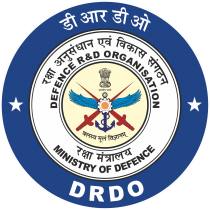Synthetic training models provide equivalent physiologic stress response in learners
SAN ANTONIO, Oct. 4, 2018 /PRNewswire/ -- A study from the University of Minnesota Combat Casualty Training Consortium shows no significant differences between the use of live tissue models and synthetic training models in the learners' stress level. The study being presented at the CHEST Annual Meeting 2018 in San Antonio shows that similar stress levels can be reached in the learner while learning critical medical procedures with synthetic models. This type of simulation may be able to reduce the use of live animals for training without sacrificing educational quality.
Researchers performed a randomized controlled study of 277 learners undergoing army combat simulation training and compared procedural training and assessment on a live tissue goat model versus the best-in-class synthetic training models. Participants were randomized twice, first to train on live or synthetic models, then to determine whether final assessment would be performed on live or synthetic models. Simulated procedures included hemorrhage control, needle thoracostomy, tube thoracostomy and cricothyrotomy. Physiologic stress responses of the medics were evaluated during the final assessment. Salivary amylase and cortisol levels were also used to assess stress response and were measured at baseline, t+5, 15, 25, 35, and 45 minutes post event start.
No significant differences were seen for peak stress response of salivary cortisol or amylase, regardless of LT or STM method for training or assessment. In addition, the stress response did not correlate significantly with total performance score.
"High-fidelity simulation offers many advantages, including broad exposure to procedures, their complications and the opportunity for repetitious learning in a nonclinical setting," says lead researcher Dr. Jonathan Keller. "The stress of learners undergoing simulation events is a growing field of interest. This study shows that synthetic models can produce a stress response equivalent to that of live tissue during simulation training."
Further results from these two studies will be shared at CHEST Annual Meeting 2018 in San Antonio on Wednesday, Oct. 10, 1:00 PM to 2:00 PM, at the Henry B. Gonzalez Convention Centre, Exhibit Hall. The study abstracts can be viewed on the journal CHEST® website.
ABOUT CHEST 2018
CHEST 2018 is the 84th annual meeting for the American College of Chest Physicians held Oct. 6 to Oct. 10, 2018, in San Antonio, Texas. The American College of Chest Physicians, publisher of the journal CHEST®, is the global leader in advancing best patient outcomes through innovative chest medicine education, clinical research and team-based care. Its mission is to champion the prevention, diagnosis and treatment of chest diseases through education, communication and research. It serves as an essential connection to clinical knowledge and resources for its 19,000 members from around the world who provide patient care in pulmonary, critical care and sleep medicine. For more information about CHEST 2018, visit chestmeeting.chestnet.org, or follow CHEST meeting hashtag, #CHEST2018, on social media.
CONTACT: Andrea Camino, acamino@chestnet.org, 224-521-9513
View original content:http://www.prnewswire.com/news-releases/synthetic-training-models-provide-equivalent-physiologic-stress-response-in-learners-300724615.html
SOURCE American College of Chest Physicians



